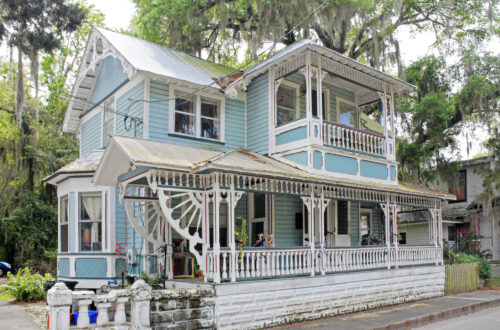The housing crisis is an issue that is widely discussed in the arena of Florida politics. With the midterms happening today, many local candidates’ platforms center on how they plan to address this issue. The key to addressing this complex issue is coming up with innovative solutions.
In the 2022 Florida legislative session, legislators emphasized how not enough had been done in addressing the housing crisis. Instead, there have been constant cultural wars and attacks on local power.
Local power is pivotal when addressing the housing crisis. So, what can local governments do to address this housing crisis?
Many cities have taken the innovative approach of eliminating single-family housing requirements. Cities such as Minneapolis, Minnesota, and Tacoma, Washington, as well as states such as California and Oregon, have seized on zoning reform as a solution to the housing affordability crisis. Recently joining this movement is our very own Gainesville, Florida.
This zoning reform has sparked both support and opposition from the people of Gainesville. Those in opposition bring up issues of property value and gentrification. Those in support see this reform as a viable solution to creating affordable housing.
“Cities don’t like to do things first. So I think when you see other cities doing it just yesterday, already through the last week, Charlotte also moved forward on a similar zoning ordinance,” Commissioner Adrian Hayes-Santos told the Florida Political Review.
While local governments are smaller, their decisions can forge a nationwide movement. It is important to understand the significance of the city of Gainesville in taking this revolutionary step.
No revolution occurs without opposition — it is only natural. Some of those opposed to this reform have raised concerns about the gentrification of historically Black neighborhoods in Gainesville.
“This [reform] actually exempts many of those neighborhoods. Historically Black neighborhoods like Fifth Avenue Plaza and three-quarters majority of the Duvall neighborhood,” Hayes-Santos said.
When looking at housing issues through the stages of the public policy process, it’s important to understand how significant the notion of the nuclear family is in shaping housing policy.
Current housing standards follow the rigid order of the nuclear family, which is an American notion. Also, many immigrant families from Latin American countries do not have these traditional nuclear families. Thus, the current standards could affect what a family can afford, influencing where they live.
The state and federal governments play a pivotal role in what actions and decisions local governments can take to best suit the needs of their constituents. Decisions made in Washington, D.C., and Tallahassee directly affect local communities.
“The state of Florida [needs] to get rid of a lot of the preemptions they have on cities being able to help with rental rights and other things like that, to ensure that the housing that we have in our communities is safe and affordable,” Hayes-Santos said.
Many residents of Gainesville worry that these changes will lead to rapid and drastic changes to the city.
Hayes-Santos’s message to residents of the city of Gainesville is that “you won’t see these changes kind of happen slowly across the city, these incremental changes.”
With the midterms happening, it’s important to pay attention to candidates’ plans at every level of government to approach the housing crisis, as it will take every level of government working together to make significant change.
Check out other recent articles from the Florida Political Review here.
Featured image: Gainesville City Hall. Unmodified photo by Ebyabe used under creative commons license. (https://bit.ly/3ptnVda)





